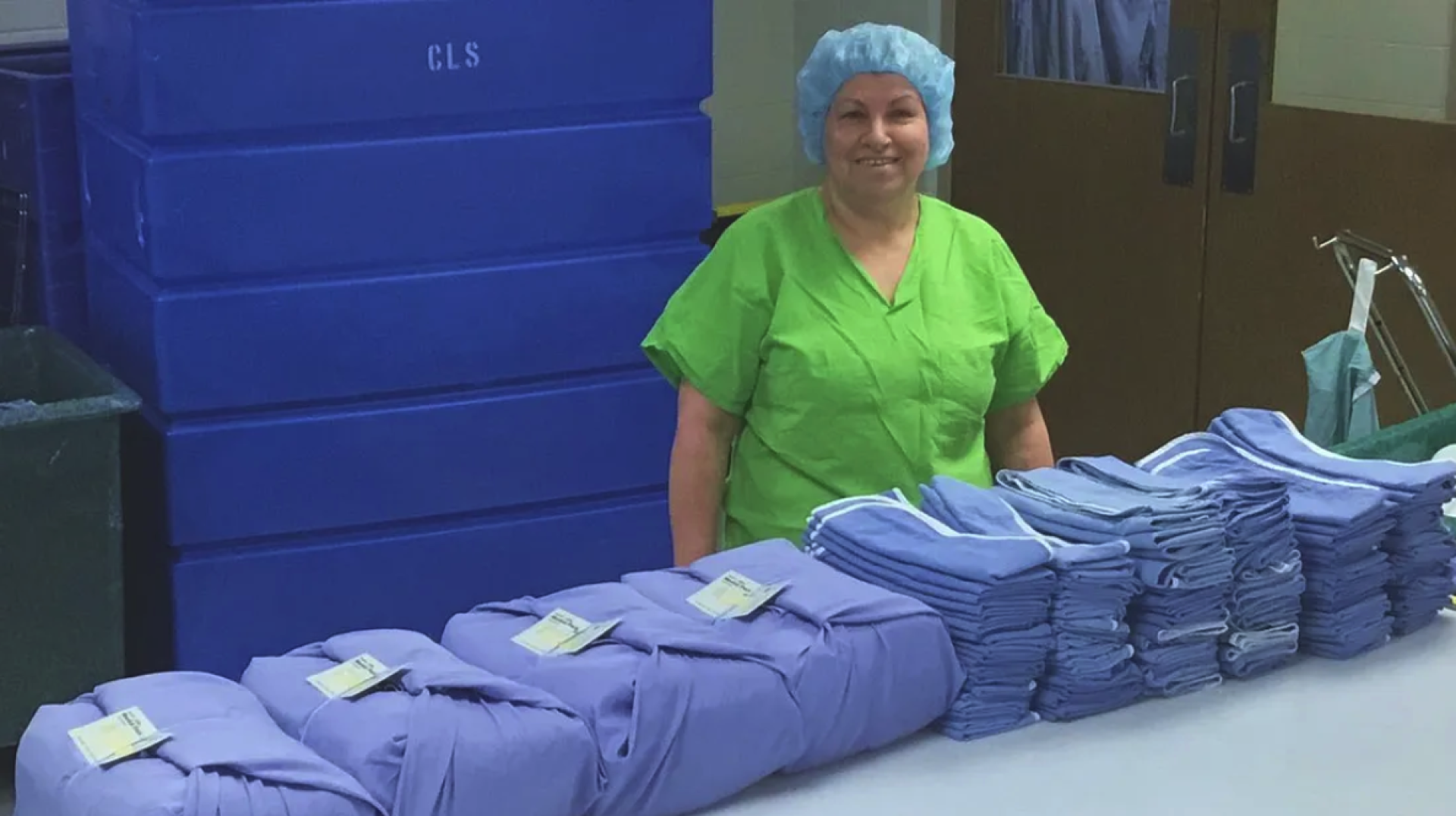More than 70% of emissions from the health care sector are primarily derived from the health care supply chain – the production, transport, use, and disposal of goods and services that the sector consumes. – “Health care climate footprint report” by Health Care Without Harm and Arup
The COVID-19 crisis exposed the fragility and vulnerability of our global supply chains. It also has given us an opportunity to move toward localized supply chains that not only reduce environmental harm but also provide local business opportunities and jobs.
When deciding on products and services, health care organizations should consider not only effectiveness but also overall environmental footprint, worker and patient safety, and community impact.

Our stories: UCLA Health hero ensures PPE supply during pandemic & beyond
Victor Mitry is called a “hero” because, thanks to his forethought, health care workers at University of California Los Angeles Health did not experience a shortage of isolation gowns during the pandemic. Now his innovative strategy is continuing to pay off over the long term with cost savings and environmental benefits.
Act now
Many leading health systems are partners of Practice Greenhealth 🡥, our membership organization. Practice Greenhealth provides tools, resources and a community of practice to implement sustainable practices in health care.
Develop a sustainable procurement program
Our groundbreaking guide, featuring stories from 25 health care organizations around the globe, offers a roadmap to develop a sustainable purchasing strategy that prioritizes community and environmental health and safety while reducing costs.
Purchase sustainable products
Practice Greenhealth helps member hospitals facilitate the purchasing of products that meet our standardized environmental criteria 🡥 and achieve safer materials benchmarks. The Greenhealth Approved seal 🡥 makes it easier for hospitals to identify and select products that meet their goals.
Purchase sustainable food
Health Care Without Harm and Practice Greenhealth provide comprehensive healthier food purchasing guidance and resources 🡥 including purchasing standards that identify product attributes (third-party certifications, label claims, and other attributes), and strategies that complement this standard.
Transform the supply chain
Because of health care’s guidance and demand for better options, manufacturers are working with health care to create safer products. Learn which companies and health systems are driving change and what health care leadership can do to encourage market transformation.

Our stories: How Kaiser Permanente keeps 70M square feet of flooring free of toxic chemicals
Kaiser Permanente is one of the nation’s largest nonprofit health systems. With 39 hospitals and 697 medical facilities across eight states and the District of Columbia, its large portfolio includes more than 70,000,000 square feet of flooring. And according to Jennifer MacDaniel, Kaiser Permanente principal interior designer, all approved flooring has been vetted for chemicals of concern and exemplifies the system’s environmental standards.